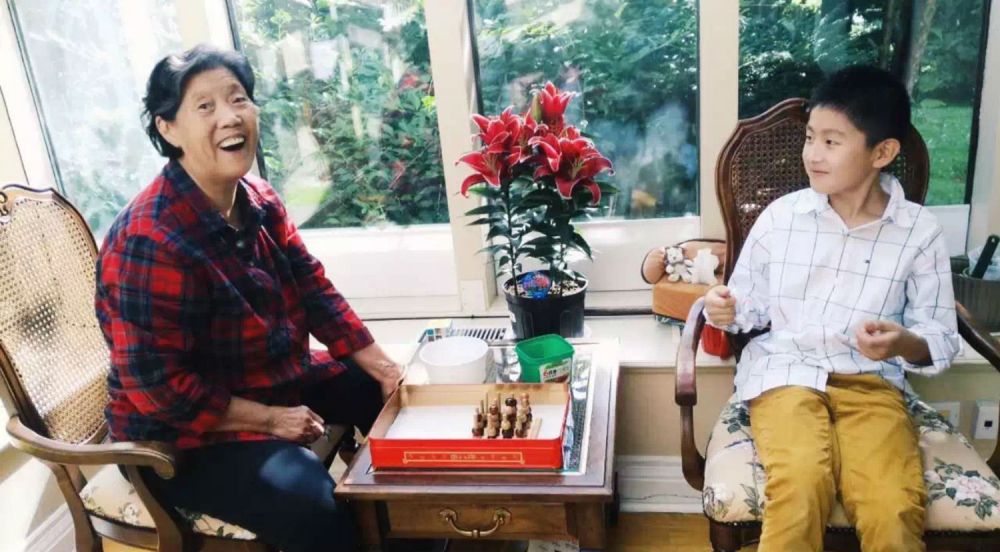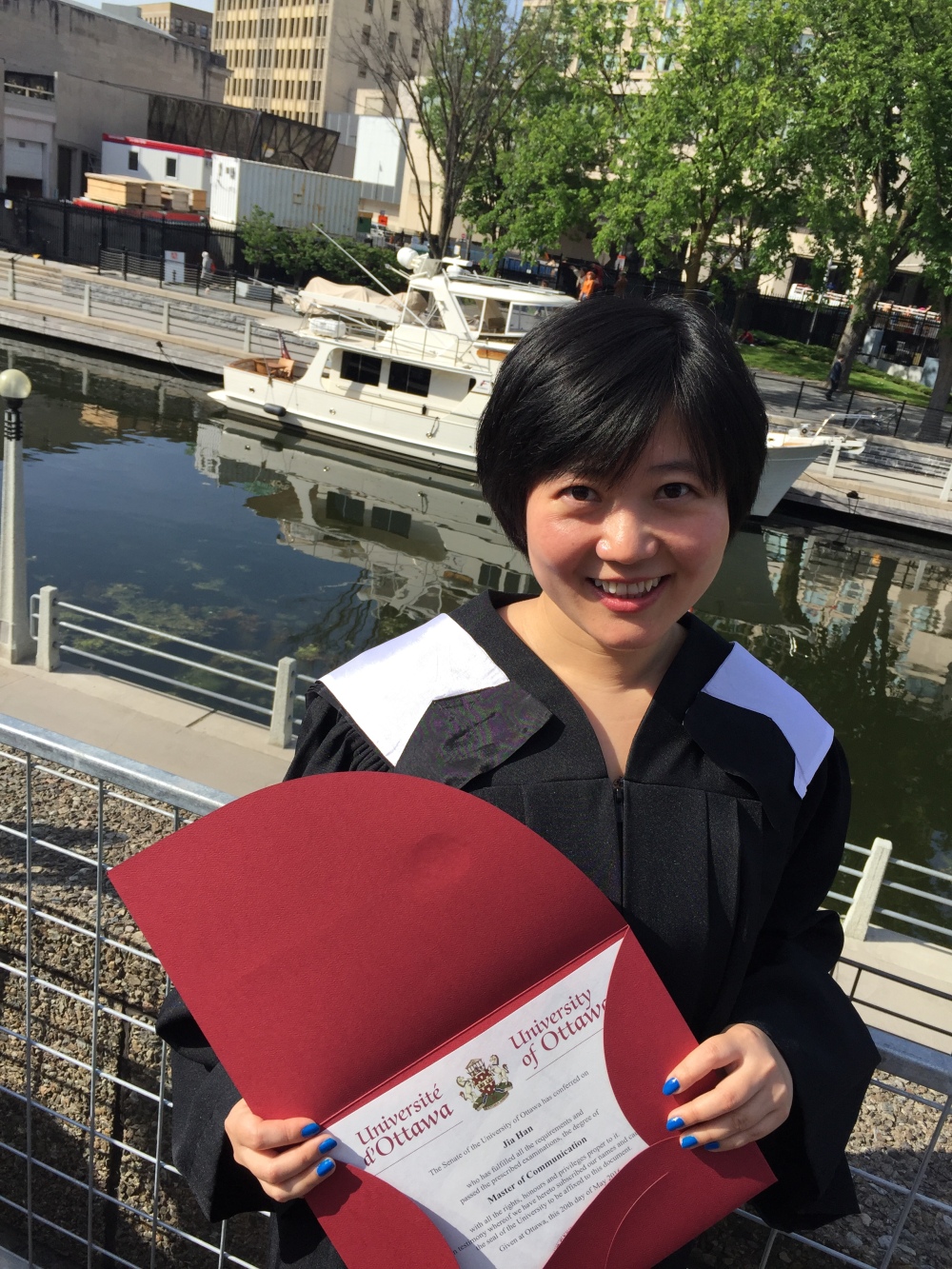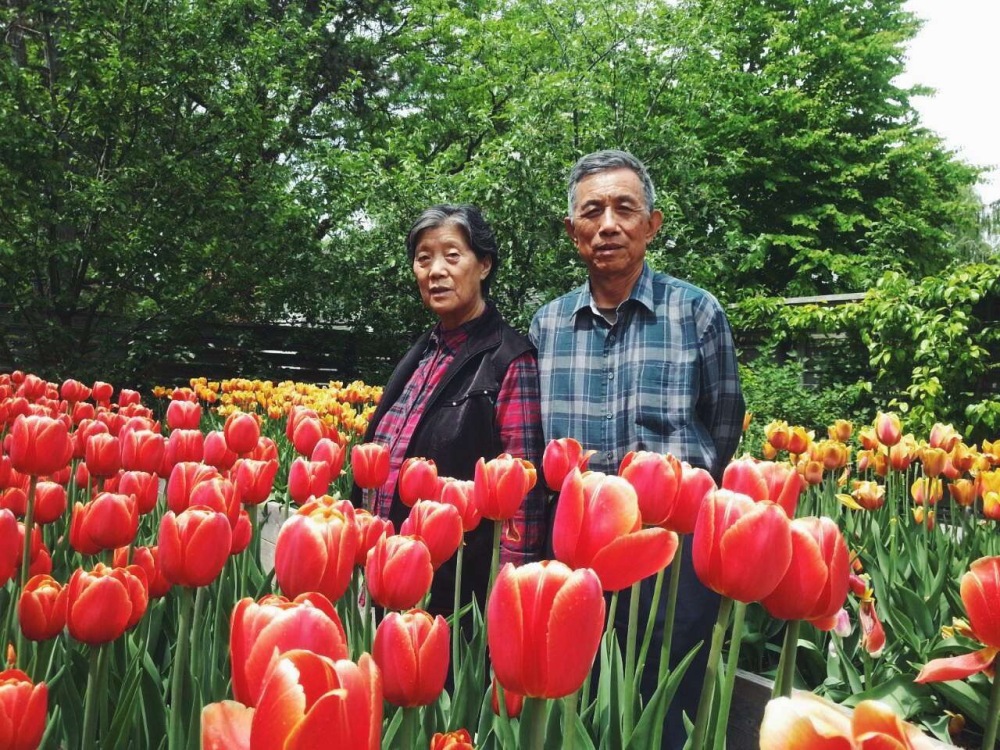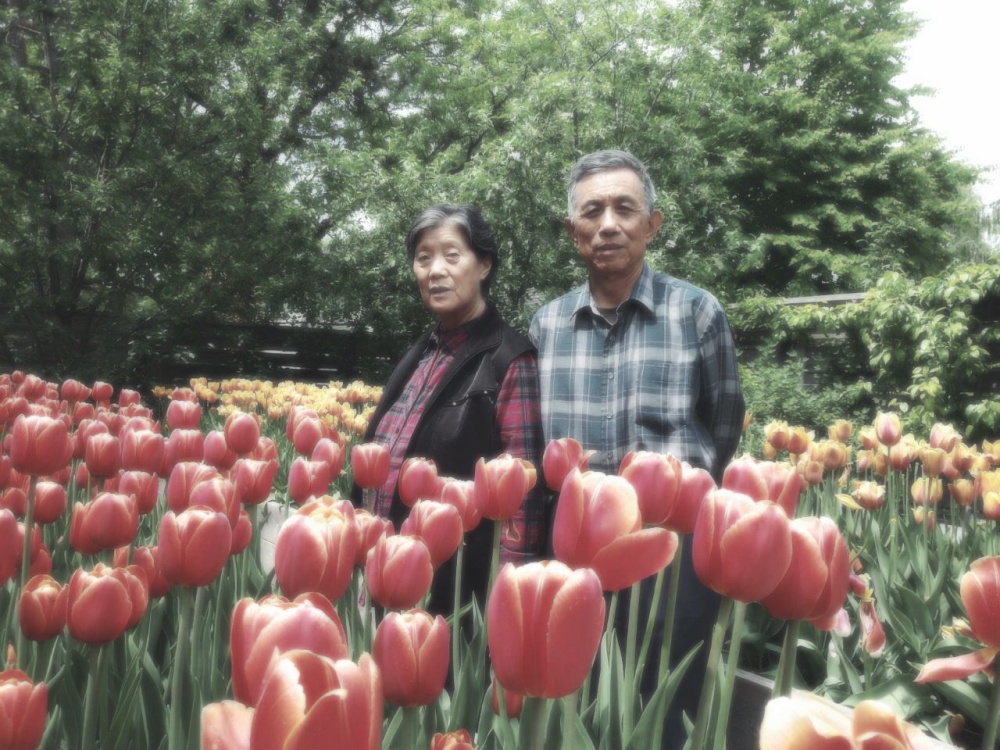Same as “the tide of studying abroad”, there is also a term called “the tide of migration” to describe large-scale migration behaviours in Chinese society. China has experienced three times of migration trends since the establishment of the People Republic of China in 1949. According to Lianhe Zaobao, a major Singaporean newspaper publication, the increasing immigration to other countries in China, starting from 2010 to current time, is considered as “the third tide of immigration”.

Yonge-Dundas Square, Toronto
Before Chinese government implemented the policy of reform and opening up to the outside world in 1978, there is almost no migration in China expect stowaways because of the special political and international situation at that time. Even there are stowaways, the most common destinations of them are either Hong Kong or Macau. The first tide of migration took place at the end of the 1970s when people who have connections with people abroad reunited with them, and the second tide of migration occurred in the 1980s when skill works move to western countries for making better livings. Differ from the previous two, people from the third tide of migration are usually wealthy elite or skilled elite from the middle class, and today’s protagonists Motong Lu and Wenyan Li fall into this categories.

Motong and her mother Wenyan in Toronto, 2017 summer
Motong and her mother Wenyan have been living in Toronto for 4 years since they landed Canada in 2013 as new immigrants. Before they started the new life in Canada, Wenyan had a steady job with considerable income in a high position of one of the major banks in Shenyang, China, and Motong was in her secondary education at one of the leading high schools in Shenyang. Sometimes it really makes people ask that what makes middle-class family abandon their prosper life to start a brand-new one in a foreign country. The mother, Wenyan said that the primary reason for immigration is that she wants a better education environment for her daughter, and then for a better living environment. She has specifically chosen Canada because she believes Canada has done a very good job in the phase of softcore, like living environment, food safety, and humanistic quality.
Not only Motong’s family, the majority of Chinese middle-class families would consider education for the next generation as the main factor to take the courage to leave their decent jobs and wealthy lives. Over decades, the one-child policy in China structured Chinese families in a smaller size than before, and parents put way more concentration on this only child of their families. The exam-oriented education system made Chinese student under huge pressure, and that is also a factor to cause the tide of studying abroad. Sometimes immigration is also a risk, said Wenyan, “many of my friends here who used to be professors, doctors, senior engineers work in the minimum wage because of language barrier”. However, their values make them believe if their children could live better, they would be satisfied.

Shenyang, the capital city of Liaoning Province, China. Motong and Wenyan’s Hometown
Being a single parent family, Montong and Wenyan had experienced many obstacles when they first came to Canada. Language is the No. 1 problem in their mind, and that made their family has no major income in the very beginning years. While Montong studied at Seneca College, her mother also started to learn English in an ESL (English as Second Language) program that founded by the government. Now, with 4 years hard work, Motong graduated from Aviation Operation program at Seneca College and continued her study in another bachelor degree at York University while Wenyan has been a first-year student of Community Service program at George Brown College. Their life is on the way to getting better for sure in Canada.

Motong’s grandparents in Toronto, 2015
The strong emotional bond between them and hometown is always the food. Nostalgia to Motong has always been her grandmother’s Chinese dishes although she still thinks Canada is a place that you can eat cuisine in every culture. A bite of grandma’s handmade dumpling could raise happiness immediately. China embraces a very collective culture, and the food is always the simplest but most effective way to unite family together. They don’t have a very strong feeling of homesickness because they will go back to Shenyang regularly at least once a year, and they would invite family members to their new home as well.

Motong’s grandmother and young cousin at her home in Toronto, 2015
Once both of Wenyan and Motong graduated, Motong wants to start her own business in Toronto while Wenyan would be more likely contributing herself to community services or non-profit organizations to help new immigrants and refugees. This very new Canadian family is using their own way to step to a better future. When I asked Motong “where is home” during the interview, she said, “China is motherland, but Canada is my future hometown”. I can tell they all settled a position in this multiculturalism of Canada.



























